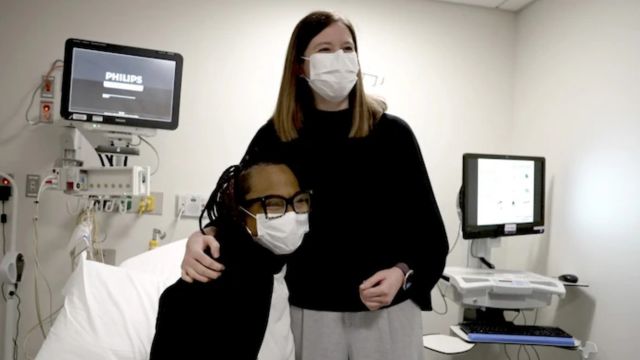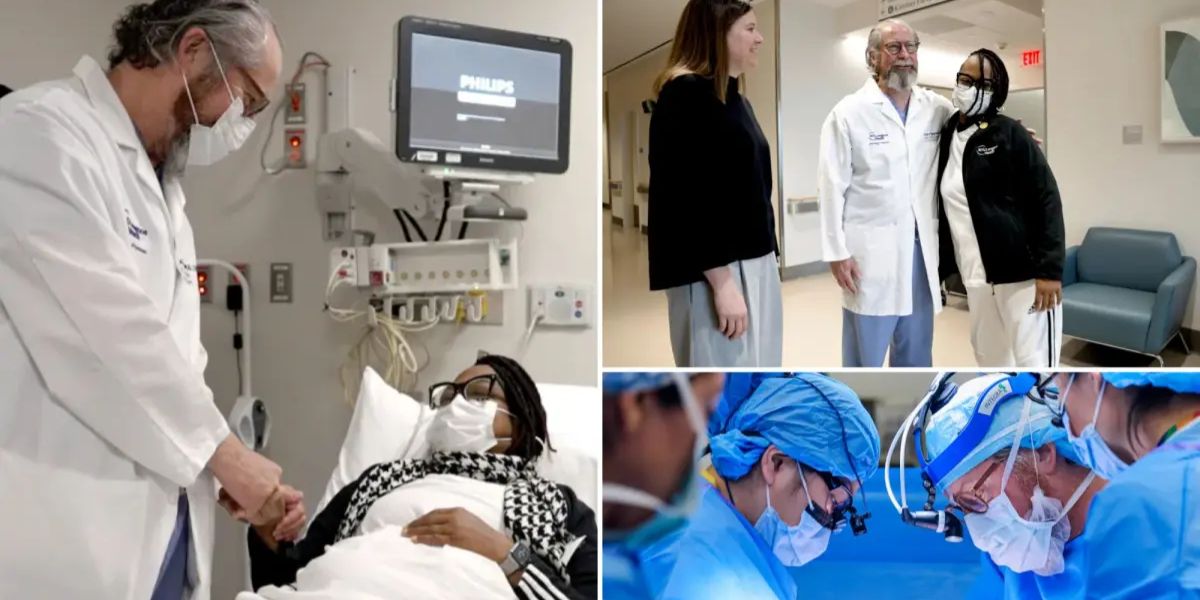Being healthy and energetic with her new kidney for 61 days and counting, an Alabama woman achieved a significant milestone on Saturday by being the longest-living beneficiary of a pig organ transplant.
As she continues her recuperation, Towana Looney told The Associated Press, “I’m superwoman,” chuckling about outperforming family members on lengthy hikes throughout New York City. “It’s a new take on life.”
The fight to make animal-to-human transplants a reality is boosted by Looney’s full recovery. Looney was the fifth American to get a pig organ that had been gene-edited.
Dr. Robert Montgomery of NYU Langone Health, who oversaw Looney’s transplant, stated, “If you saw her on the street, you would have no idea that she’s the only person in the world walking around with a pig organ inside them that’s functioning.”
Looney’s renal function was described by Montgomery as “absolutely normal.” In around another month, doctors anticipate that she will be able to return to her home in Gadsden, Alabama, from New York, where she is currently staying for post-transplant examinations.
“We’re quite optimistic that this is going to continue to work and work well for, you know, a significant period of time,” he stated.
Why researchers are transplanting organs from pigs
To solve the acute lack of transplantable human organs, scientists are genetically modifying pigs to produce more human-like organs.
The majority of the 100,000 or more individuals on the U.S. transplant list require a kidney, and thousands of them pass away as they wait.
Up until now, pig organ transplants have only been permitted as “compassionate use” research, which the FDA only permits when a person has no other choice.
As the world’s first formal trials of xenotransplantation are anticipated to start this year, the few hospitals that have tried them are exchanging information about what worked and what didn’t.
The company that provided Looney’s kidney, United Therapeutics, recently requested approval from the Food and Drug Administration to start a trial.
How Looney does is a “very precious experience,” said to Dr. Tatsuo Kawai of Massachusetts General Hospital, who works with another pig producer, eGenesis, and led the first kidney transplant in history last year.
According to Kawai, Looney was far healthier than the previous patients, therefore her development will guide future efforts.
“We have to learn from each other,” he stated.

The transplant tale of Towana Looney
In 1999, Looney gave her mother a kidney. Her remaining kidney finally failed due to high blood pressure brought on by later pregnancy difficulties, which is extremely uncommon among living donors.
Before physicians determined that she would probably never get a donated organ, she spent eight years on dialysis because she had generated extremely high levels of antibodies that were abnormally poised to attack another human kidney.
Thus, 53-year-old Looney looked for the pig experiment. How it might affect someone “highly sensitized” to those overactive antibodies was unknown.
Montgomery’s team has continuously monitored her recuperation through blood tests and other metrics since she was released just 11 days following the surgery on November 25.
A 2023 experiment in which a pig kidney functioned for 61 days inside a deceased man whose body was donated for research taught them to check for minor signals of rejection, which scientists discovered about three weeks after the transplant.
Montgomery reported that Looney was effectively treated and has not shown any signs of rejection thereafter. She also met the family who conducted the deceased-body research a few weeks ago.
Mary Miller-Duffy of Newburgh, New York, said, “It feels really good to know that the decision I made for NYU to use my brother was the right decision and it’s helping people.”
In turn, Looney is attempting to assist others by acting as what Montgomery refers to as an advocate for those who have been contacting her on social media to express their anguish over the protracted transplant waiting list and their concerns over pig kidneys.
According to her, one was being evaluated for a xenotransplant at a different facility but was afraid and unsure about whether to move forward.
Mississippi Officers Under Fire After Allegedly Shooting Mother in the Head During Car Chase
“I didn’t want to persuade him whether to do or not to do it,” Looney stated.
Rather than asking him if he was religious, she encouraged him to pray and “go off your faith, what your heart tells you.”
“I love talking to people, I love helping people,” she continued. I want to be, like, some educational piece” for scientists to help others.
Although Looney’s new kidney’s lifespan cannot be predicted, she may need dialysis once more if it fails.
“The truth is we don’t really know what the next hurdles are because this is the first time we’ve gotten this far,” Montgomery stated. “We’ll have to continue to really keep a close eye on her.”







Leave a Comment